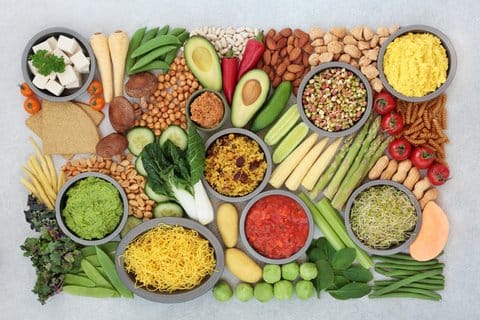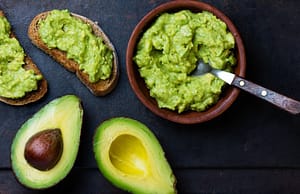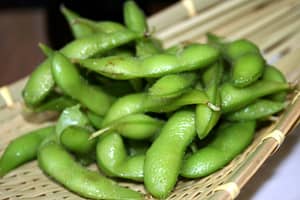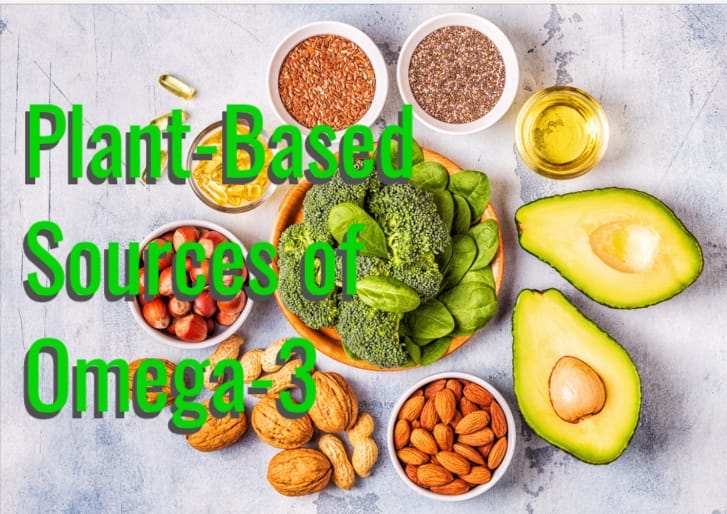Vegan Globetrotter is supported by our audience. When you purchase through one of our links, we may earn a small affiliate commission. As an Amazon Associate I earn from qualifying purchases. Your cost is not affected.
==================
WHAT ARE PLANT BASED SOURCES OF OMEGA 3
Staying healthy includes knowing what plant based sources of omega 3 we should add to our meals. Indeed, while we tend to think of this as a fish sourced nutrient, omega-3’s are found in plants, too. Ensuring we add it to our diets helps it maintain our heart, skin, and brain health.
What is Omega 3?
Omega-3 fatty acids are necessary for the healthy functioning of the brain and neurological system and have anti-inflammatory qualities. However, omega-3 fatty acids not form by the human body and must obtain via food. To get your omega-3s, though, you don’t have to eat fish or use fish oil pills.
Why Omega 3 is an Essential plant-based Source for vegans.
We all know that Omega 3 is the most beneficial thing for us. But some people believe that it is found only in fish. So then what should people who only eat vegetables? There is nothing to worry about because it occurs in many vegetables. And that’s why it’s useful for people who follow a Vegan diet.

Which Type Of Omega 3 Found In Plants?
Alpha-linoleic acid (ALA) is the only necessary omega-3 fatty acid found in plants. Because our systems are unable to synthesis ALA, we must get it from our foods. Instead, the body converts ALA to longer-chain omega-3 fatty acids, including docosahexaenoic acid (DHA).
Are Omega-3 Levels Sufficient In Those Who Follow A Plant-Based Diet?
The majority of individuals who eat a plant-based diet don’t have any trouble acquiring adequate omega-3s. However, when it comes to assessing omega-3 levels, vegans have a more significant chance of having lower EPA and DHA levels on average than no vegans.
Are Plant-Based OMEGA-3 Sources Are Differ from Fish-Based OMEGA-3 Sources?
Omega-3 unsaturated fats are promptly accessible in a wide assortment of plant food sources. Sources incorporate pecans, flaxseeds, chia seeds, hemp seeds, edamame, kelp, and green growth. Other green verdant vegetables and beans likewise contain modest quantities.
Why fish is NOT the best source of omega 3
Although vegans avoid fish for a variety of reasons, some people still believe it is necessary for omega 3’s. However, that is just not true. Not only does fish contain varying amounts of omega 3, experts also warn about the other components fish includes.
Wild-caught fish may contain contaminants from infected waters. And of course, there exists concerns for our over-fishing and diminishing our world supply. The fact is, many plant-based eaters just don’t want to eat any form of animal product, including fish. Some consider the life of the animal. Others are concerned about the way they affect our overall health and that of our environment.
So some turn to farm raised fish. Unfortunately, that creates yet another concern. Studies show that farm raised fish contains even more harmful contaminants than wild caught. In fact, the omega nutrient balance in farm raised favors the unhealthy omega 6, rather than the healthier omega 3, making farm raised fish much less desirable.
The truth is, plant-based sources of omega 3 are the healthier and more cost-effective option.
- Omega 3 plant sources are readily available
- Plant-based sources of omega 3 can be safely farmed with organic methods
- Omega 3 plant sources cost considerably less than animal based or supplement sources.
What Are the Plants Based Sources of Omega 3?
There are the following Omega 3 sources of plants. Let’s have a look!
1. Avocado

Avocado and guacamole
Avocado and it’s derivative, avocado oil, offers a wide panel of nutrients, including omega 3 fatty acids. While we cannot consider avocado as a low fat food, the fats within this nutritional powerhouse make it a healthy addition to our vegan eating. In fact, many consider this fruit as an essential part of their daily meals.
While we all know the avocado for it’s presence in guacamole dip, you might not have thought of using it fresh. But that is indeed where the avocado shines its best. Eaten straight from the skin or sliced and added to your sandwich or salad, the avocado adds a creamy texture that explodes with flavor and nutrients.
2. Hemp Seed
Hemp seeds are a favorite of ours because of their incredible nutritional profile. These seeds provide more than half of your daily omega-3 requirements in a three-tablespoon dose. However, that’s not all. Hemp seeds, also known as hemp hearts, are a great source of plant protein, fiber, iron, and magnesium, among other nutrients. In addition, these seeds are pretty adaptable and may serve for breakfast, lunch, or supper. Sprinkle on cereal or salad, include in baked products, and top your dinner entrée with these little nutritional powerhouses.
3. Kidney Beans
When we think kidney beans, we often think of chili. And certainly many a chili recipe features these great little beans. But kidney beans also provide one of our sources of plant-based omega-3s, providing approximately 10% of your daily requirements. Not only do they add to your omega 3 needs. Kidney beans also contain a high amount of fiber and a good source of plant protein. Like most beans, they help keep you satisfied until your next meal.
They’re also high in iron and folate, making them an excellent meal during pregnancy. In addition, kidney beans are a versatile ingredient that may provide texture and plant protein to various dishes.
4. Chia Seeds
A relative new comer to most people, Chia seeds are one of the most nutritious foods on the earth. They’re packed with nutrients that may help your body and brain function better. Chia seeds are well-known for their many health advantages, and each serving contains a substantial amount of fiber and protein.
The Chia seed provides a good source of ALA omega-3 fatty acids. In addition, they reduce the risk of chronic illness when eaten as part of a balanced diet because of their omega-3, fiber, and protein content.
5. Brussels sprouts
Brussels sprouts provide an often overlooked but good source of omega-3 fatty acids. These small cabbage-like vegetables contain rich amounts of vitamin K, vitamin C, and fiber, too. In fact, cruciferous vegetables, such as Brussels sprouts, are sometimes called “super vegetables” as they are high in nutrients and omega-3 fatty acids.
What’s more, research shows that eating more cruciferous vegetables results in a decreased risk of heart disease. Brussels sprouts bring a nutritious and tasty complement to any meal, whether they’re roasted, steamed, blanched, or stir-fried. While they often shine in the side dish role, consider featuring them in your entrée for an occasional treat.
6. Perilla Oil
In Korean cuisine, Perilla Oil often shines as a condiment and cooking oil. It’s a great source of omega-3 fatty acids and a versatile and tasty ingredient. Perilla seed oil is high in omega-3 fatty acids, with ALA accounting for over 64% of the total.
Perilla oil should use as a flavor enhancer or dressing rather than a cooking oil to get the most health advantages. It is because polyunsaturated fat-rich fats may oxidize when heated. This results in damaging free radicals that lead to illness.
7. Soybean (Edamame)

edamame (soy beans)
Edamame is another nutritious powerhouse. Also known as soybeans, edamame offer about 20% of your omega 3 needs in a half-cup serving. As an added benefit they contain protein, fiber, and other fundamental nutrients.
8. Flax Seed Oil
Flaxseed oil is the most incredible plant source of ALA, and it’s the only cooking oil with a better omega-6 to omega-3 ratio than canola. In addition, flax seeds are famous for their many health benefits, including providing a hearty dose of protein and fiber, reducing appetite, and aiding in weight control.
Flax oil is lopsided with omega-3, and flax seeds are known for their many health benefits. Some benefits include a hearty dose of protein and fiber, reducing appetite, and aiding in weight control.
9. Seaweed and Algae (Algal Oil)
Seaweed? Really? Yes, Kelp, spirulina, nori, and chlorella contain a rich amount of omega-3 fats. These food varieties are particularly significant for veggie lovers and a few vegans to burn through because they give one of the solitary plant-based wellsprings of EPA and DHA omega-3’s.
For those unfamiliar with seaweed, consider these:
- Sushi (yes, even the vegan kind) usually uses the seaweed called Nori in the wrapping.
- Some people snack on various types of Seaweed enjoying the crispy flavors.
- Chlorella and spirulina make a healthful contribution to smoothies, granola, or oatmeal.
- Adding Algal Oil to drinks or smoothies also provides a good source of EPA and DHA omega 3’s.
10. Pumpkin Seeds
Pumpkins, a member of the squash family, contain seeds that host a wealth of omega 3, in addition to other nutrients and fiber. Roast them and eat as a snack. Or add them to your salad for a flavorful crunch.
11. Walnuts
While an assortment of nuts is considered superfoods, walnuts could very well be genuinely outstanding for ideal wellbeing. Studies have discovered many types of nuts, including walnuts, lower pulse rate and assist us with shedding pounds. They contribute to our overall well-being, including adding those all important omega 3’s.
Conclusion
Omega-3 fatty acids are an essential element of a balanced diet and are necessary for good health. You may still receive the advantages of omega-3 fatty acids in your diet if you don’t consume fish due to dietary restrictions or personal choices. It is feasible to achieve your omega-3 requirements without seafood by integrating a few omega-3-rich items into your diet or choosing a plant-based supplement.
Read More
How Do Vegans Get Their Protein





Don't miss out
when new recipes and information are added!
Join our newsletter for free recipes,
healthy living inspiration, and special offers
You have Successfully Subscribed!